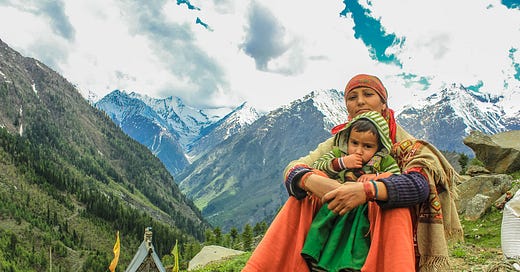🌏 The Biodiversity Accelerator+ 2022 Cohort Feature: GroundUp Conservation
Consulting at a grassroots level, for the preservation of biodiversity
TL;DR - GroundUp Conservation incubates grassroots enterprises working at the intersection of conservation and livelihoods, to break the chain of donor-dependence and stretch the impact return of philanthropic funding. They work closely with grassroots communities and Indigenous People & Local Communities (IPLCs) in biodiversity hotspots to refine their business strategy, digitise their operations, and offer their expertise in environmental and financial sustainability. See some of their projects here!
If you work in the conservation space, you’d have heard this by now - indigenous communities, making up less than 5% of the world's population, protect 80% of global biodiversity. And yet, they’re often not only excluded, but actively harmed by, the work of conservationists.
This exclusion of grassroots communities from critical decision making is core to why many conservation efforts fail. Funders are increasingly recognizing this, and want to support more inclusive projects that benefit both local livelihoods and the planet.
But finding the right teams is no mean feat. Large project developers may have the professional capacity to manage a project well, but they have to spend huge amounts of money just to undergo feasibility studies to find a suitable project area, unpacking each location's geographical and political landscape to even begin to understand what might be possible in that area. And if the project developer departs from that area, there is no certainty that the impact they helped create lasts.
⛰️ How it works: Incubation, 1,000 feet in the air
Enter GroundUp Conservation: an incubator not in the traditional sense of the word, but one that trains grassroots organisations in the Western Himalayas, Deccan Plateau and Terai Belt of India and Nepal to become professional business owners in their own right. Importantly, it puts the decision on how the profits of conservation should be reinvested into the hands of the local communities themselves.
In its approach to environmental conservation, GroundUp asks: Why not empower grassroots communities to become stewards of their own landscapes, rather than relying on external managers? Could we get IPLCs to become financially self-sustaining?
GroundUp Asia works to scale nature-based enterprises working in one of the following three areas: eco-tourism, nature-positive products (such as wild-forest produce), and landscape restoration. To do so, they:
👉🏼 Identify grassroot organisations in target landscapes, based on filtering metrics such as landscape degradation, biodiversity potential, and the level of reach these organisations have to their communities
👉🏼 Work closely with these organisations in-person to identify gaps, co-build landscape and business strategies, develop team capacities, and streamline management over an average of 2-3 months.
👉🏼 After the initial hands-on consultancy process, GroundUp enters a monitoring phase to follow up co-developed action plans via regular meetings, enabling continued advising and growth.
Making it happen: A blended finance approach to conservation
In the early stages of developing local enterprises, donors and development organisations play key roles in helping communities take a first step towards self-determination.
GroundUp’s strong network of donors and supporting organisations have thus far mobilized US$1.5M for ground action, restoring 787 hectares of land, seeing increases in species abundances for 182 species, and bringing the sustainable products of 6,000 Indian farmers to market.
After this initial establishment phase, the grassroots organisations work like you’d expect any young company to: they head into growth phase, and might even start to look for external equity investments.
As far as GroundUp is concerned, they will invest in the most promising enterprises that comes across their plates.
The team at GroundUp has had extensive background in conservation, and evidence-based impact is the heart of all that they do. CEO and Founder Swapnil Chaudhari has had over 14 years of experience in leading conservation and development programs, in South Asia, the Himalayas, Eastern Africa, and Europe, while Radhika Kothari, Ground Up's Head of Grassroots Strategy, has over 12 years of experience in the Himalayas with a specialization in grassroots capacity building.
They are continuing to streamline their business & operational model in order to replicate their solutions across Asia with better speed, efficiency, and efficacy. At the Biodiversity Accelerator+, we’re hoping to catalyze Ground Up’s business to scale - and they’re taking the learnings from our programme and spreading them tenfold!
Want to learn more? Check out the GroundUp Asia website, Instagram and Linkedin page for more updates.






